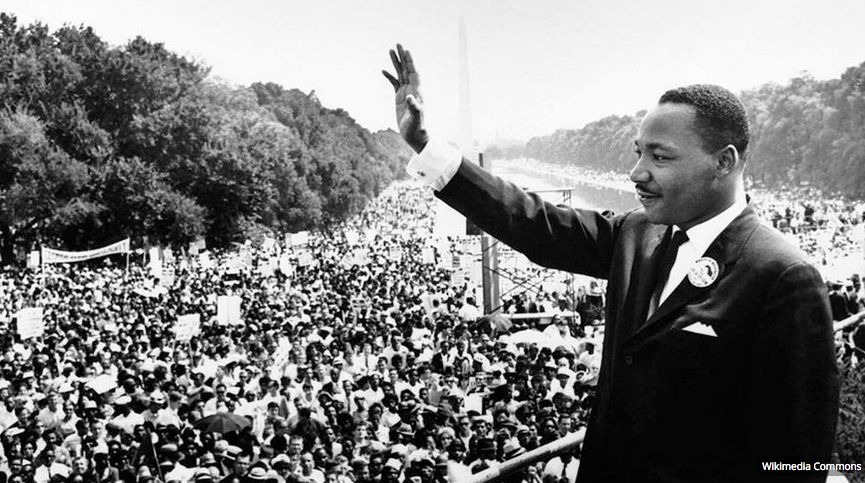Dr.Martin Luther King, Jr., has always been a hero to me. Growing up in the inner city of Boston, I memorized his “I Have a Dream” speech. I remember trying to imitate his cadence and delivery as I practiced it. In 1963 he wrote Letter from a Birmingham Jail. He addressed it to “My Fellow Clergymen” and as a clergyman, I prayerfully read it every year during the holiday when we remember this great American hero.
Dr. King was, first and foremost, a Christian. His understanding of the unity of the message of salvation animated his life’s work. He did not separate faith and life. The Dream he proclaimed in that message lives on precisely because it was born from the pierced heart of the Savior Martin Luther King followed. He knew that as Jesus offered Himself on that Cross on Golgotha, he brought down the dividing walls of hostility which separate us. (See, for example, Eph 2:14.)
I am here because injustice is here
In the Letter, he explained to some within the Christian community of his day who had objected to his methods: “I am in Birmingham because injustice is here.”
Just as the prophets of the eighth century B.C. left their villages and carried their “thus saith the Lord” far beyond the boundaries of their home towns, and just as the Apostle Paul left his home in Tarsus and carried the gospel of Jesus Christ across the Greco-Roman world, so am I compelled to carry the gospel of freedom beyond my own home town. Like Paul, I must constantly respond to the Macedonian call for aid.
He articulated one of the best expressions of Christian solidarity I have ever read: “I am cognizant of the interrelatedness of all communities and states. I cannot sit idly by in Atlanta and not be concerned about what happens in Birmingham. Injustice anywhere is a threat to justice everywhere. We are caught in an inescapable network of mutuality, tied in a single garment of destiny. Whatever affects one directly, affects all indirectly.”
Standing on the shoulders of the Old Testament Prophets and under the Shadow of the Cross where the final Prophetic voice, the Word made Flesh, hung in selfless love for all men and women, Dr. King addressed another thorny subject, the fact of unjust civil or positive laws, asking “How does one determine whether a law is just or unjust?” He answered:
A just law is a manmade code that squares with the moral law or the law of God. An unjust law is a code that is out of harmony with the moral law. To put it in the terms of St. Thomas Aquinas: An unjust law is a human law that is not rooted in eternal law and natural law. Any law that uplifts human personality is just. Any law that degrades human personality is unjust.
Dr. King confronted those in his day who accused him of being an extremist because he called some positive laws unjust and therefore not law at all, and led a movement that rejected them. Many of his fellow clergymen argued that opponents of unjust civil laws must not be too public in that opposition. He had these words of clarity and conviction to say to them: “One who breaks an unjust law must do so openly, lovingly, and with a willingness to accept the penalty. I submit that an individual who breaks a law that conscience tells him is unjust, and who willingly accepts the penalty of imprisonment in order to arouse the conscience of the community over its injustice, is in reality expressing the highest respect for law.”
Source: Deacon Keith Fournier, https://stream.org/martin-luther-king-jr-human-rights-march-life/
 Listen Online
Listen Online Watch Online
Watch Online Find a Station in Your Area
Find a Station in Your Area








 Listen Now
Listen Now Watch Online
Watch Online
